Sustainable Fashion Week Empowers Local Solutions
Plus: Fashion Roundtable at the Labour Party Conference 2024
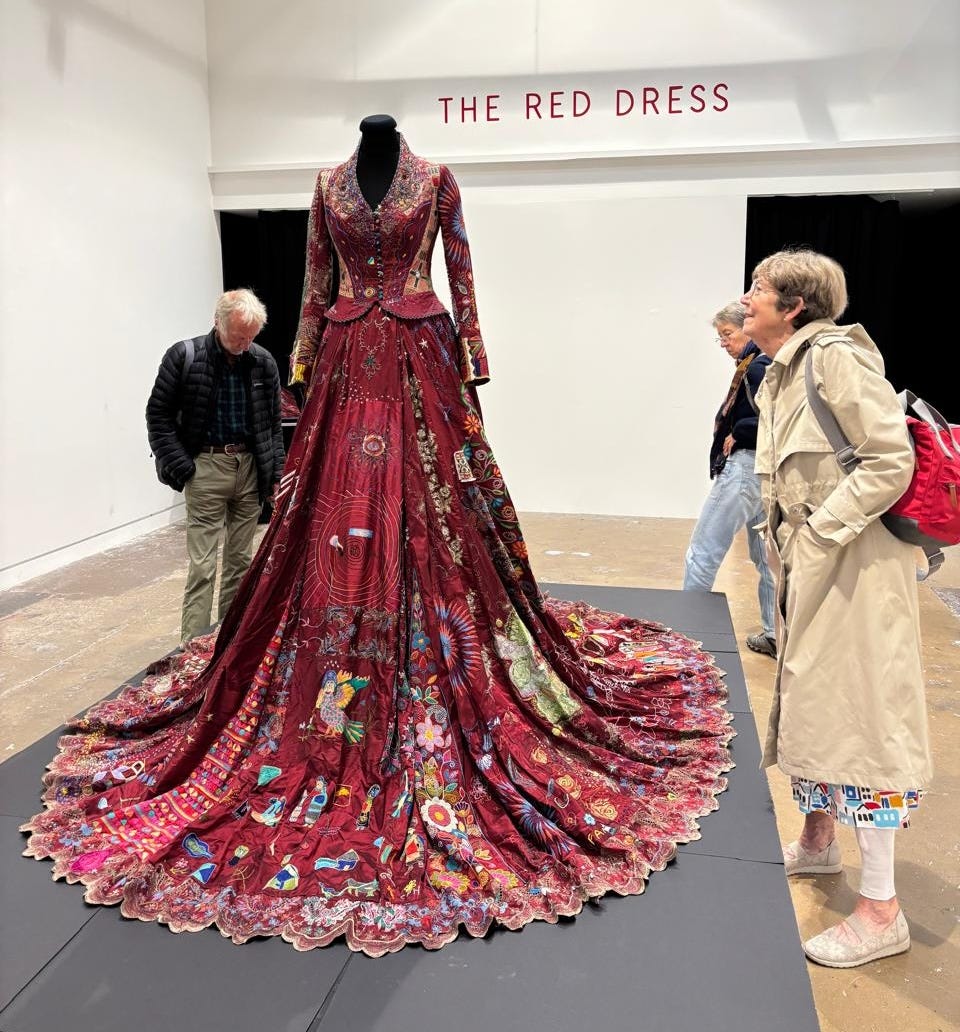
Last week saw lots of exciting Sustainable Fashion Week events take place at Bath Spa University’s Locksbrook campus, which was the Flagship Hub for 2024. Events across the week included a film screening of The Nettle Dress, the display of The Red Dress and a talk from it’s creator, Kirstie Macleod, a panel discussion on history, heritage and sustainability, along with a number of workshops on mending, upcycling and beyond. The week also saw a clothes swap and a number of sellers operating out of Locksbrook.
The star of the week was undoubtedly the stunning Red Dress, which was on display alongside a short film about it’s creation and a 3D digital rendering from BSU academic Dr. Coral Manton. The dress spent 14 years, from 2009 to 2023, travelling between 51 different countries in 87 different pieces to be embellished by 380 embroiders. It is an incredible piece of art that showcases the identity we carry through craft, and the solidarity that can be found in artistic expression. It is a truly incredible piece, and if you happened to miss out you can still check out Dr. Manton’s 3D render of the dress right here.
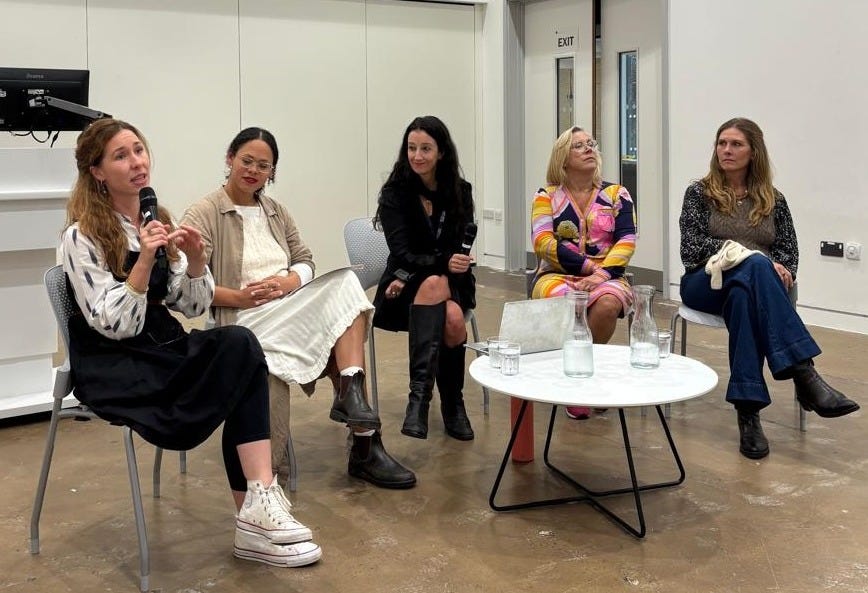
The panel event on Thursday night was another big success, bringing together experts from different corners of the industry to engage on history, heritage and sustainability in fashion, and how we can learn from the past to change the course of fashion for a better future. The event was Chaired by Tamara Cincik, Founder of Fashion Roundtable and Professor of Sustainable Fashion at Bath Spa University, who was joined on the panel by Kate Hills from Make it British, Jamilla Ives from the King’s Foundation, Ruth Rands from Herdwear, and the one and only Amelia Twine, the incredible woman behind Sustainable Fashion Week. The discussion was rich and centred on the value of preserving and reinvigorating the skills the fashion industry needs to thrive on British soil. Catch a full recording of the discussion on Fashion Roundtable’s Instagram.
SFW took place all around the country, for a successful program of events that engaged communities in the power of local action in reducing the harms of the fashion industry. There’s events running up until the 12th October, so be sure to check out their website for info on what you still have time to see! Congratulations to Amelia for another massively successful year!
Words by Alix Coombs
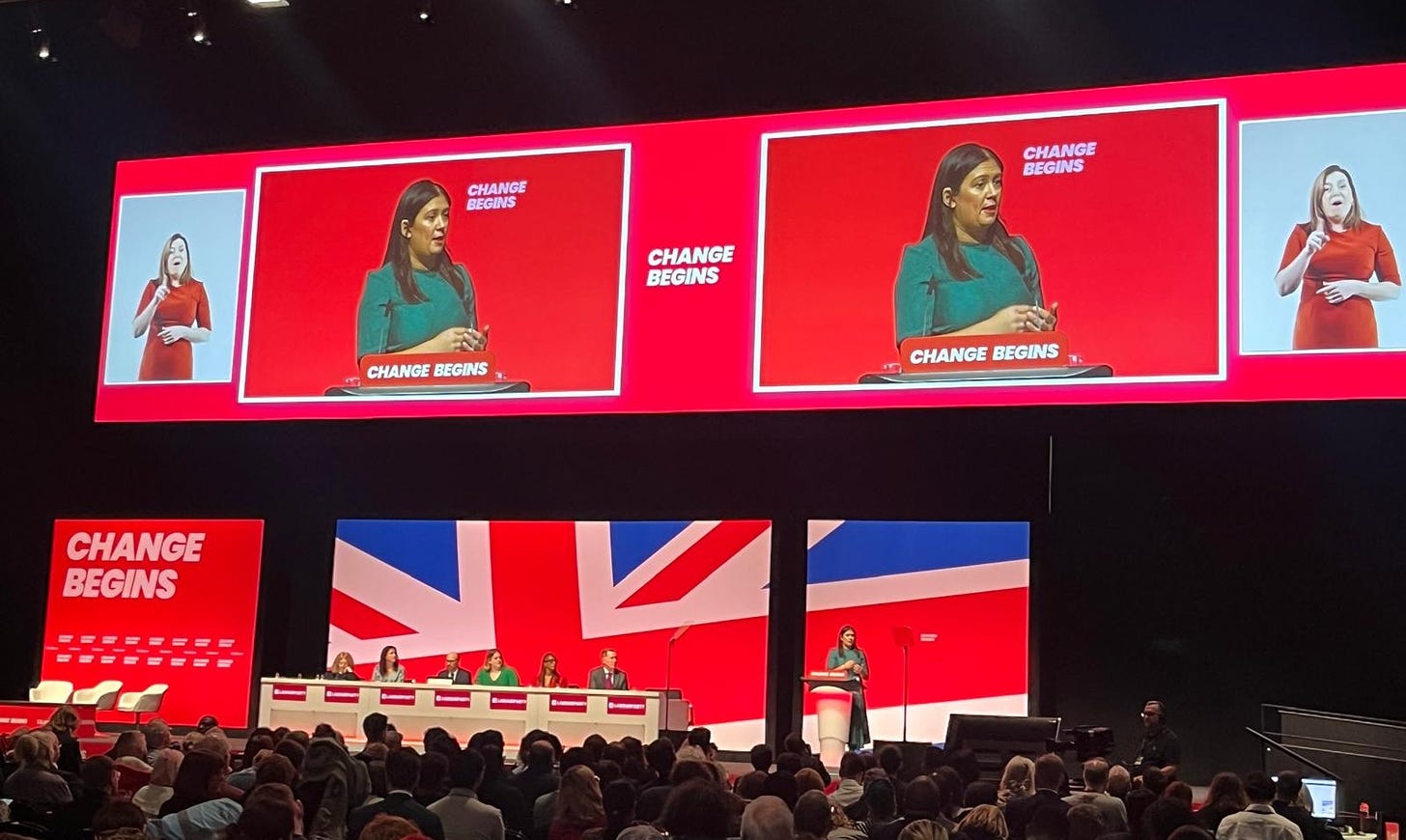
Creative Renaissance: Why Labour’s New Vision Makes This the Moment for the Arts to Shine
The stage is set, the spotlight is on, and Labour’s General Election manifesto, alongside the powerful speeches from Keir Starmer and Lisa Nandy last week at the Labour Party Conference, make one thing clear: Britain’s arts, culture, and creative industries are poised for their moment to shine. After years of underinvestment and what Nandy termed “cultural vandalism,” the creative sector is set for a renaissance. But why now, and what makes this the perfect time for the arts to take centre stage?
A Vision of Cultural Renewal
Lisa Nandy, Labour’s Secretary of State for Culture, Media, and Sport, captured the urgency of the moment in her conference speech. She spoke passionately about reversing the damage inflicted on the nation’s cultural landscape over the past decade and restoring what has been lost. “This is what cultural vandalism looks like. And Conference, it ends today,” she declared, delivering a rallying cry for a new era of creative empowerment.
This commitment is more than rhetoric. Labour’s manifesto outlines a comprehensive strategy for the creative industries, placing them at the heart of its vision for a revitalised Britain. From film and gaming to music and fashion, every creative avenue is getting a boost through policies designed to create jobs, inspire future generations, and ensure that the arts are accessible to everyone, everywhere.
Restoring the Arts to the Classroom
One of the standout commitments is Labour’s pledge to put the arts back into education. As Nandy highlighted, the creative sector’s decline began when arts and music were stripped from school curriculam. “Running down the arts subjects, narrowing the curriculum and slashing council funding so parts of the country became cultural deserts… They choked off choices and chances for a generation,” she said.
In response, Labour’s manifesto promises a review of the school curriculum to “put arts, sports, and music back at the heart of our schools and communities where it belongs.” This initiative aims to nurture the talents of a new generation, ensuring that every child, regardless of background, has the chance to experience the transformative power of creativity.
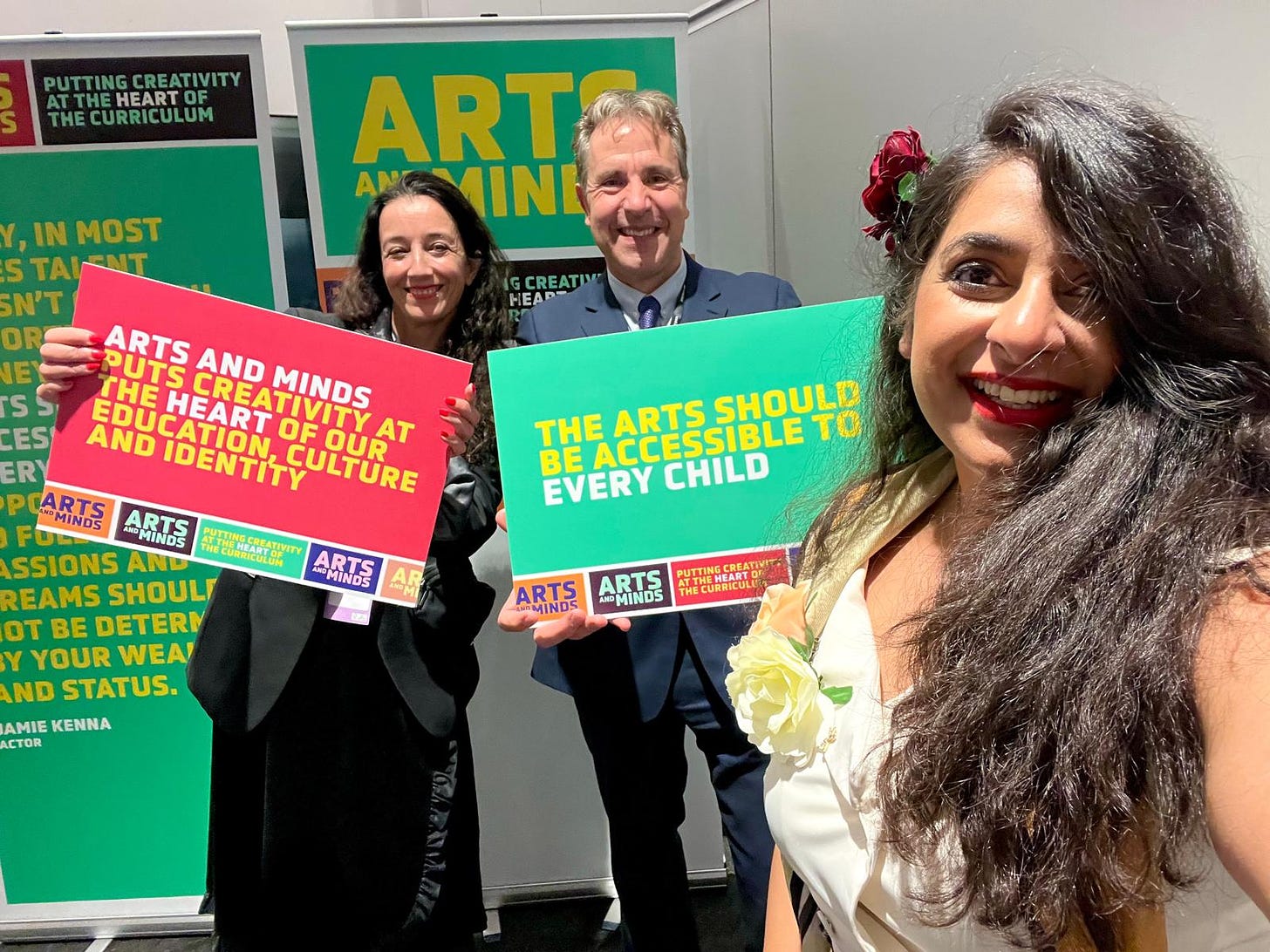
Powering Local Economies Through Creative Investment
Labour’s strategy doesn’t stop at education. Nandy’s speech made it clear that the creative industries are also central to Labour’s plan for economic renewal. By investing in film, gaming, and music industries in cities like Sunderland, Blackpool, Birmingham, and Dundee, Labour is laying the groundwork for a thriving local creative economy. “We will put rocket boosters under tourism, film, gaming – growing creative industries… so people in every part of our country have not just good jobs in their own community, but the chance to write the next chapter of our national story,” she explained.
This push is further reinforced by Labour’s commitment to supporting public service broadcasters like the BBC, ensuring they remain vibrant and representative of the nation’s diverse voices. Nandy announced that Labour is “about to kickstart the charter review to ensure the BBC survives and thrives well into the latter half of this century.” This shows a clear understanding of the role public broadcasters play in supporting creative economies and showcasing British talent on the world stage.
Bringing Communities Back into the Cultural Fold
For too long, communities outside of major metropolitan areas have been starved of the resources needed to support vibrant cultural scenes. Labour’s manifesto seeks to address this imbalance by empowering local communities to reclaim their cultural assets. “We will hand back power to communities to reclaim their cultural assets and historic buildings so they have a vibrant future, not a forgotten past,” Nandy promised.
This shift is about more than restoring lost heritage—it’s about giving communities the tools to shape their own cultural futures. By supporting local museums, theatres, and galleries, Labour aims to transform “cultural deserts” into hubs of creative activity, fuelling local pride and engagement.
A Nation’s Identity Reflected in Its Art
Keir Starmer, too, made the case for why the arts are essential to Labour’s vision for national renewal. In his conference speech, he painted a picture of Britain’s creative prowess: “A nation known for our creativity. Our artistic skill. Our scientific genius… qualities that, combined with the industry and pride of working people, have not just rewritten our own story but also that of the world.” This sense of a shared cultural legacy is something Labour wants to safeguard and expand.
Starmer acknowledged the transformative power of creative education, recounting his own experience with the flute. “The flute gave me so many opportunities… early encounters with art and culture, they change us forever, and we are brilliant at them in this country,” he said, underlining the importance of making these opportunities available to all.
A Manifesto for Creative Growth
Labour’s manifesto is packed with tangible policies designed to lift the arts and creative industries out of the shadows. The centrepiece is a Creative Industries Sector Plan, aimed at creating good jobs and accelerating growth in sectors such as film, music, gaming, and fashion. This initiative is about more than just economic prosperity; it’s about positioning Britain as a global leader in creative innovation.
Additionally, Labour plans to improve access to cultural assets by requiring publicly funded national museums and galleries to increase the loans they make from their collections to communities across the country. The goal is to ensure that the arts aren’t confined to London or a select few institutions but are accessible to everyone, reinforcing Labour’s mantra of “arts for everyone, everywhere.”
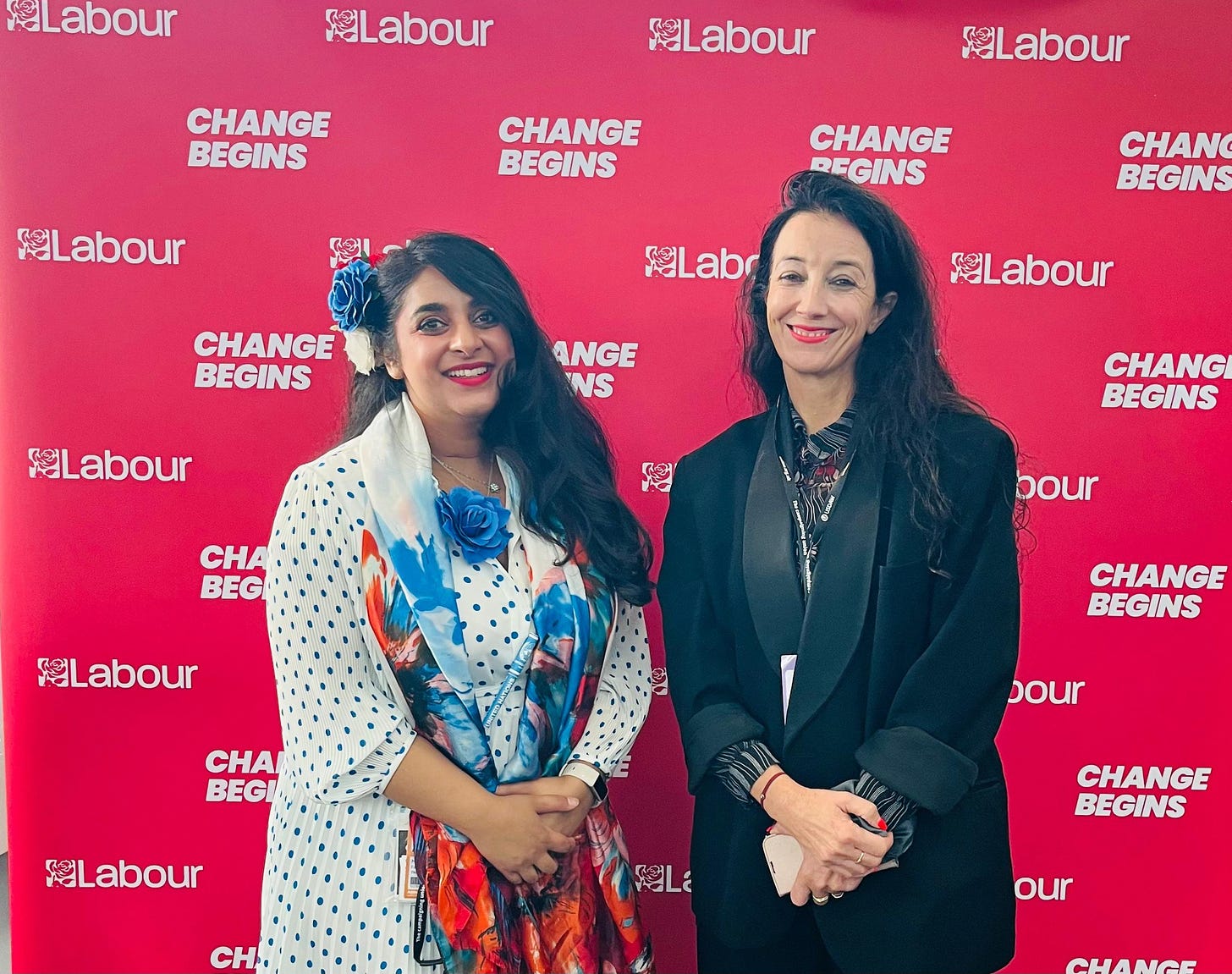
Fashion Roundtable: A Natural Partner for Labour’s Vision
At Fashion Roundtable, our focus has long been on advocating for a stronger and more sustainable fashion industry that complements many of Labour’s ambitions. Our Sector Vision Report outlines key recommendations that align closely with Labour’s goals:
STEAM Education: Labour’s promise to reintroduce arts and music into the curriculum echoes our own call for a return to a STEAM curriculum—Science, Technology, Engineering, Arts, and Maths—to equip young people with the skills they need for future creative industries.
Support for British Manufacturing: Labour’s focus on growing local creative economies dovetails with our call for greater investment in UK manufacturing. We advocate for initiatives that support consistent, long-term orders for British fashion manufacturers, ensuring a robust supply chain that contributes to local economies.
Creative Wellbeing: Labour’s commitment to arts and culture as part of national renewal aligns with our vision for a Creative Wellbeing Economy—an approach that places creativity, community, and inclusivity at the heart of policy-making.
International Talent and Trade: With Labour in government, there’s an opportunity to address key challenges like restriction-free movement for UK talent, ensuring that our industry remains globally competitive and connected post-Brexit.
Inclusivity and Access: Nandy’s emphasis on “arts for everyone, everywhere” mirrors our push for greater inclusivity within the fashion industry, ensuring that opportunities in creative fields are open to all, regardless of background or geography.
The Call to Action: Let’s Make Creativity the Cornerstone of Britain’s Future
Labour’s victory in July 2024 and their subsequent policies for culture and the arts are not just promises on paper—they represent a genuine opportunity to reshape Britain’s creative landscape. But for this vision to become a reality, we must work together, championing our sector at every opportunity. This is not just a matter of supporting the arts—it’s about recognising that the creative industries are fundamental to our country’s identity and future prosperity.
So let’s make our voices heard. Every action counts, every partnership matters, and every step forward will help create a country where creativity and culture are not sidelined but celebrated. As campaigners, industry leaders, and advocates, we know that change doesn’t happen by sitting on the sidelines.
Now is the time to engage constructively with the government, push for the policies we need, and ensure that our sector is at the heart of Britain’s cultural renaissance. Because when we champion the arts, we don’t just enrich lives—we build a stronger, more vibrant, and united nation. Let’s seize this moment and shape the future of creativity together.
Words by Michelle Kazi
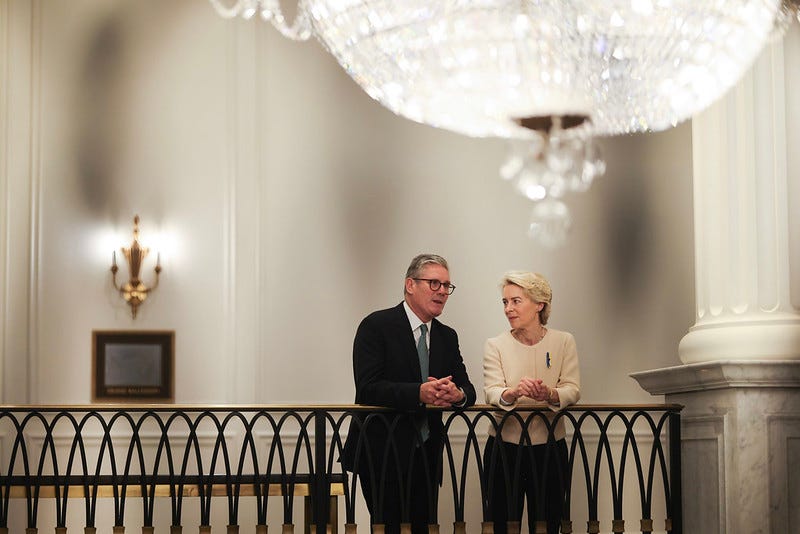
Opening the Doors: Why a UK-EU Youth Mobility Scheme is Key to Britain’s Creative Renaissance
With the Labour Government’s promise of a “Creative Renaissance” echoing across the UK, one thing is clear: for this vision to succeed, the creative industries need access to the best talent and an open channel for the exchange of ideas. This is where a UK-EU Youth Mobility Scheme comes in — a crucial step towards resetting post-Brexit relations and unlocking the full potential of the creative sector.
The recent Labour Party Conference outlined bold ambitions for the arts, with Lisa Nandy and Prime Minister Keir Starmer championing policies to reintegrate arts and culture into the nation’s fabric. But to turn these promises into a thriving creative economy, Britain must address one of the most glaring post-Brexit gaps: youth mobility. Reinstating a mobility scheme would not only enable young creatives to gain invaluable international experience, but also allow the UK’s cultural sector to tap into a diverse pool of young talent, enriching everything from theatre and music to fashion and design.
The EU has signalled its willingness to consider a youth mobility scheme, one that would allow under-30s to live, work, and study across the bloc. This isn’t about reverting to the free movement of old; it’s about offering a new pathway for cultural exchange and collaboration. If the EU is ready to compromise, the UK should embrace this opportunity. To shut the door now would be a missed chance to rebuild trust and strengthen our creative industries, which are already grappling with labour shortages and increased red tape post-Brexit.
For Labour’s broader vision to succeed — one that seeks to rebuild the UK’s standing as a global leader in creative industries — this is a moment to lead. Starmer has spoken about wanting “deeper cooperation” with the EU, but achieving it requires more than words. A Youth Mobility Scheme would send a strong message that Britain is once again open for collaboration, committed to nurturing the next generation of creative talent, and ready to build a future rooted in shared cultural and economic ties.
If Labour is serious about its cultural strategy, it cannot afford to shy away from such critical negotiations. Let’s remember: this is about more than politics. It’s about Britain’s place in the world, its creative future, and its role as a hub for innovation and artistic excellence. Now is the time for constructive engagement — for pushing forward on a scheme that not only benefits young people but reinvigorates the entire creative sector. The Government has a chance to turn a new page in UK-EU relations — and it starts by opening the doors for our youth.
Check out ‘The Great British Wool Revival’ this Wool Week: 29th September - 5th October 2024
The Great British Wool Revival - an open source tool to help designers and makers navigate an on-shore supply chain, from sourcing fleeces to final production, all stages are covered
Four organisations have come together to make The Great British Wool Revival possible: The project is directed and run by Fashion Roundtable and is written and researched by The Wool Library. It has been funded by YOOX NET-A-PORTER as part of its Modern Artisan programme for 2024, a pioneering talent initiative to train emerging designers and makers in partnership with The King's Foundation at their headquarters at Dumfries House in Ayrshire, Scotland - where conversations around using locally reared sheep for wool began.




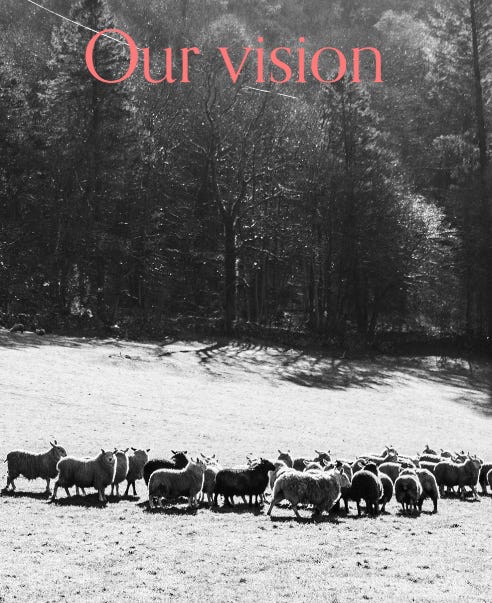

What an interesting event! And stunning dress. Thanks for sharing.